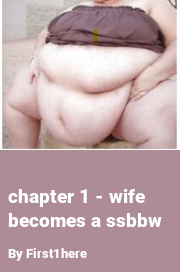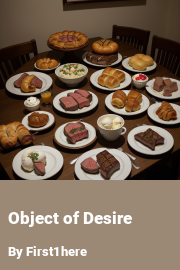Chapter 1
Edward always awoke first, and when he woke, it was not as a civilian awakes: the first ripple of consciousness spread outward, searching for cracks or entropy in his meticulously ordered world. Only after confirming, in those first silent moments, that the house remained as he'd left it did he grant himself the luxury of noticing the sunlight. This morning it crawled across the kitchen's custom floor in dense, irregular polygons. A thin line of gold traversed the threshold, warming the floor tile in precisely the direction Edward liked to stand.He liked to think of his kitchen as a sanctuary, but the word "laboratory" was just as apt. He had designed it for himself-though if you were being honest, you'd say it was for Ella. The countertops, quartzite over a skeleton of reinforced steel, had no lip to collect flour dust or errant syrup. The stove, a six-burner induction surface, could maintain an even 375°F across all zones; the oven, a European import, boasted three separate convection fans. There was an island that wasn't an island, a block of surface anchored directly to the subfloor, braced for load. Even the cabinetry had a sense of ballast, heavier than it needed to be.
Edward approached the kitchen each morning as if entering an operating theatre. The apron-a thick blue canvas-hung from a hidden hook, its loops worn glossy by his forearms. He tied it behind his back in a double knot. Hands washed and dried (he was exacting in this), he set the ingredients on the prep surface one by one: bread flour, superfine sugar, heavy cream, eggs, butter, vanilla. For the pancakes, only whole eggs; he separated whites for the whipped cream later. Ella had a fondness for tall stacks, not plate-sized but silver-dollar, perfect rounds each four inches across. Thirty-six, always.
He started with the batter, whisking together the dry ingredients, sifting twice into a chilled glass bowl. He measured buttermilk to the gram, watched the viscosity as he poured in melted butter. When he folded in the eggs, the batter shone with a faint yellow iridescence, a texture closer to custard than anything store-bought. Resting the batter in the refrigerator was essential: ten minutes, no more.
While the batter settled, he arranged the toppings. The syrup had to be warm, but not hot-a lesson learned after Ella once complained that the sweetness "lost its teeth" at higher temps. He decanted Vermont maple into a cut-crystal pitcher, set it in a water bath at precisely 110°F. The Nutella went into a low porcelain bowl with a little wooden spoon, the handle lacquered red. Whipped cream was a point of pride: Edward whipped his own, in a copper bowl, and set it in the freezer so it would be just stiff enough to hold, even under the weight of the pancakes. Chocolate chips were always Guittard, semi-sweet, served in a tiny silver dish Ella had found at a flea market three winters ago.
With the prep work complete, he checked the griddle's surface temperature with a digital probe. The steel slab radiated an even warmth; he misted it lightly with clarified butter, using a silicone brush. Each scoop of batter landed with a quiet sizzle, and as he poured, a smile crept across Edward's face. He imagined how each perfectly formed pancake would contribute to Ella's delightful transformation, making her a little bigger and rounder with every bite. Pouring twelve pancakes at a time, he moved in sequence, adjusting the position of each as the batter set. His offset spatula glided effortlessly, wielded with the delicacy of a surgeon-never a jagged edge or lopsided flip. The thought of Ella savoring this feast filled him with warmth, a shared joy that echoed in the rhythm of his cooking.
It was always in this sequence, just before the first pancakes came off the griddle, that Edward allowed himself a moment of anticipation: the thought of Ella, still sleeping in their bedroom, wholly unaware of the orchestrated morning below. He liked to imagine her stirring as the scent of vanilla and browning butter crept down the hallway, the softest intake of breath as she realized what waited for her.
He stacked the pancakes six high, each layer separated by a paper-thin swipe of sweet butter. He worked with a deliberate grace, pausing after each stack to ensure symmetry, that none of the edges protruded beyond its layer. When the final set was done, he transferred them to an enameled cast iron tray-also pre-warmed, lined with a tea towel to absorb condensation. The tray had handles wide enough for both his hands, and on days like this, he imagined himself a priest with an offering.
At the plating station, Edward meticulously crafted the breakfast spread, his heart swelling with excitement for what lay ahead. He arranged the toppings around the pancakes in a vibrant circle, their hues popping against the pristine white stone surface. A handful of fresh raspberries tumbled onto the tray, their ruby red brilliance contrasting beautifully with the rich chocolate. The syrup pitcher, warm and glistening with condensation, found its place in the upper right corner; Nutella and whipped cream were positioned at opposing corners, creating a delightful symmetry. In the center, the chocolate chips formed a small constellation of deep brown against the silver dish, a tempting focal point that beckoned to be savored.
Beside this indulgent display, Edward had prepared a massive funnel feeding formula, an impressive 2.5 gallons packed with 40,000 calories, designed specifically to help Ella reach her ambitious goal of surpassing 600 pounds by their anniversary. Each element of the breakfast was not just a feast but a celebration of their journey together, a tangible representation of Edward's unwavering commitment to support her in achieving her dreams.
It was a point of pride for Edward that he could perform his morning ritual blind, his body and mind so trained to repetition that even distraction sharpened rather than dulled him. Some mornings he floated through memories as he worked, letting past and present overlap in productive harmony. Today, as he sprinkled the last few chocolate chips onto the central mound, his mind drifted backward-not to his youth, but to a moment six years earlier, the weekend that rewrote the trajectory of his life.
He'd been headlining a culinary showcase in downtown Chicago, his first true step into the orbit of the city's elite. The venue was an old cathedral, stripped of pews and filled with temporary kitchens and stations, the arched ceilings echoing with the clink of glasses and laughter too bright to be entirely sober. The air was a stratified soup of butter, charred sugar, and perfume: women in evening dresses, men with tailored jackets, the whole crowd buoyed by the implicit promise of decadence.
Edward had arrived three hours before the first guest. He spent his setup time fussing over the chafing dishes, testing the torch on his signature crème brûlée, arranging his risers of amuse-bouche so they'd catch the light. He wanted everything to read as both effortless and artful-an act, but an honest one. By the time the doors opened, he'd run through two pairs of latex gloves and triple-checked the garnish.
She appeared midway through the first wave, at the edge of his peripheral vision, and Edward noticed her before she noticed him. She was one of those women who knew how to fill space without dominating it-her walk unhurried, her posture straight, the cut of her cobalt dress made to call attention to her shoulders, her arms. Athletic, he thought. Rower, perhaps, or swimmer. She moved with the energy of someone who had spent years in motion.
She didn't approach his station immediately, but circled the room, looping past the wine bar and the caviar display, pausing to chat with a tall man in a black turtleneck. Only on her second circuit did she stop in front of his table, picking up one of the brûlées and examining it with an odd intensity.
"May I?" she asked, as though she'd ever needed permission.
Edward nodded. He watched as she cracked the sugar shell with the side of her spoon, lifting the perfect hemisphere to her lips. She chewed slowly, eyes closing, tongue pressing the custard against the roof of her mouth. When she swallowed, it was with a soft, satisfied hum.
"You used lemon zest," she said, not a question.
He smiled. "Meyer lemon, and a touch of cardamom."
She took another bite, savoring it. "The zest hits first, then it's all vanilla and smoke. I like it." She set down the empty cup, eyes never leaving his face. "Most people lean on the sugar crust and forget the rest."
"Most people like sugar," Edward replied. "But you're not most people."
He'd meant it as a compliment, but she only smirked, letting the silence stretch. Then she selected a second brûlée-this time the espresso variant-and repeated the ritual. When she finished, she wiped her mouth with a napkin, folded it into a tiny square, and tucked it into her clutch.
"I'm Ella," she said. "And you're the reason I'm skipping dinner reservations."
She came back twice more that evening, first with the turtleneck man in tow, then alone. Each time, she tried a different dish-duck confit on a micro-waffle, an orb of foie gras encased in cherry gelatin, a crostini with house-pickled onions and shredded brisket. Ella's appetite was impressive, but what struck Edward most was her curiosity. She interrogated each flavor, unafraid to tell him what she liked or what she'd do differently. Her palate was, if not refined, then at least adventurous.
The night wound on; the crowd thinned. Edward watched Ella move from station to station, never overeating but never holding back, sampling her way through the offerings with the focus of a sommelier working a blind flight. He saw her laughing at the cheese counter, deep in conversation at the patisserie, sipping a digestif at the bar. She didn't seem to notice the way the room slowed around her, how every table she visited became, for a moment, the axis of the event.
He wasn't surprised to see her again at the close, standing at his table as he wiped down the last of the melted caramel. She was less poised now, her cheeks flushed, hair slightly loosened from its original style.
"I think you won," she said, setting her clutch on the table.
"Won what?"
"The evening. My friends are all talking about your burnt sugar magic."
Edward shrugged, feeling a shy warmth. "It's just chemistry. Sugar and heat."
"Nothing is 'just chemistry,'" Ella said, and the phrase lingered, as if it had a second meaning she was still considering.
They talked while Edward broke down his station, boxing up leftovers, labeling containers. Ella asked about his background, his schooling, the restaurant where he staged on weekends. She told him about her own work-data analysis for a consulting firm, an industry that bored her, but funded her weekends and race entries. She'd rowed in college, it turned out, and now ran marathons for fun. He wondered, fleetingly, if she ever ate crème brûlée outside of events like this.
As the evening ended, they exchanged numbers, the act as effortless as the rest of the conversation. Edward didn't expect anything beyond maybe a follow-up text, but the next afternoon, as he was prepping a new batch of batter in his own kitchen, she messaged him a photo of her post-run breakfast: a stack of pancakes, whipped cream melting into a glossy pool.
She'd captioned it, "Nothing is just chemistry."
That was the start.
They spent the rest of that winter in a slow-burning orbit, meals shared in half-empty restaurants, midnight snacks cobbled together from whatever Edward could carry in a tote bag. He learned that Ella, for all her discipline, had an almost childlike glee when it came to food she hadn't made herself. She wanted to know every detail of his process, to be present at each step: mixing, resting, searing, tasting. It was the same curiosity she'd shown that first night, now turned inward, as if by learning the mechanics of pleasure she could master it.
What surprised him most was how quickly she began to change. The first hint came in late February, when she let herself order a dessert at a crowded downtown bistro, demolishing a slice of olive oil cake in three bites. A month later, she joked about skipping her morning run to join him at the farmers' market. By summer, she'd stopped keeping track of her pace times, and though she still ran, it was slower, less competitive. Her shoulders softened; her legs, once angular, filled out. She laughed more. She lingered over meals, always finishing every bite.
Edward loved watching her transformation. It was not merely physical-the subtle redistribution of flesh, the way her face rounded, her hands grew softer-but something deeper, a loosening of internal rules. Ella didn't become slovenly or undisciplined; she became expansive, a person in possession of herself, willing to take up space.
He returned to that first night often, trying to locate the exact moment when she'd decided to let go, to say yes to the world. It might have been the lemon brûlée, or the third trip to his table, or the way she'd smiled as she watched him work. But mostly, he thought, it was in the pause after her first bite-the moment where she closed her eyes, allowed herself to want.
When Edward lost himself in his work, the outside world shrank to the size of his own precise intentions. With the pancake stack, he allowed himself no distractions-not even the idle hum of the refrigerator, which he'd once considered replacing with a model boasting quieter compressors. Thirty-six pancakes, each one uniform to the millimeter, the gold outer ring just shy of caramelization, the centers buoyant enough to spring back at the tap of a finger. Arranged six by six, vertical, the stack looked as stable as a scale model of a municipal tower block-each "floor" leveled by an interleaving of butter cut with surgical accuracy.
On the island counter, the serving tray awaited. Technically, it was not a tray at all but a custom-fabricated rectangle of brushed stainless, surface-scored to provide traction for plates, with handles big enough to accommodate Edward's grip even if he wore oven mitts. He positioned the pancakes in the tray's center, each stack arrayed at a thirty-degree offset for visual interest and easier access. Toppings radiated outward in a deliberate gradient: the Nutella's glossy brown, the whipped cream's matte white, the chocolate chips' granular black. The syrup's cut-crystal pitcher anchored the entire composition, light refracting through its ridges onto the countertop in angular highlights. Edward placed it last, lifting it by the body, never the handle-a habit from years of watching servers snap delicate glass at the hinge point.
He ran a critical eye over the arrangement, searching for the slightest evidence of misalignment. None. The tableware-Ella's favorite, a service for eight in raw-edge ceramic-had been set beforehand, each place exactly parallel to the table's long edge. Napkins, stone-washed linen, folded into neat squares. No centerpiece: he hated clutter.
Edward was resetting a dessert spoon by a fraction of an inch when the house gave its first audible sign of awakening. Down the hall, a deep creak, not sharp but resonant, like the slow tuning of a cello. The bed's frame-engineered to withstand what even the most ambitious manufacturers dared not warrant-shifting against its foundation. He stilled, listening, and was rewarded by a second, more tentative sound: the dull thump of feet finding floor, and the elastic groan of bedsprings as they uncoiled.
He smiled, but did not move. The moment was a luxury. It gave him time to survey his territory.
The kitchen had once been a conventional galley, its dimensions dictated by an architect who'd never spent a day in food service. Over the years, Edward and Ella had transformed it. Walls came down; the flooring replaced with composite tile over reinforced joists. The counters-standard height, originally-had been lifted three inches to spare his back, and their edge-to-edge span offered room for the largest cutting boards he could commission. The walkways were doubled in width, a necessity as Ella's circumference expanded, but just as useful for carrying full arms of groceries or party platters. Even the sink, an extra-deep basin with an industrial sprayer, was mounted with an offset lever for easier access.
But the real genius was in the details. Cabinet hardware, levered not knobbed, so you could open with an elbow if your hands were messy. Toe-kick drawers for sheet pans. Every appliance wired to its own breaker. He'd sketched the plans himself, Ella providing edits on ergonomics and traffic flow, and every revision made the kitchen more precise, more tuned to their collective habits. It was, Edward thought, the physical embodiment of their shared sensibility: neat, adaptable, designed for pleasure and built to endure.
He wiped a stray crumb from the tray's perimeter with the edge of his thumb. Then he turned his attention to the dining area, which was no longer divided from the kitchen by anything more than a line of sight. The table, a custom job in honeyed maple, stood on legs that thickened dramatically just above the casters-Edward's own addition, after the second time he'd needed to relocate it. Chairs were a matching set, but one stood out: the head, retrofitted over time with a wider seat, reinforced crossbars, and armrests padded in marine vinyl. The modifications were subtle, only visible if you knew to look, but they changed everything.
Edward circled the table, checking clearances. He moved the head chair three inches outward, then stood behind it, picturing how Ella would approach. The floor beneath was rated for twice their combined weight; he'd overseen the installation himself. The room's traffic lanes, widened with future needs in mind, made movement possible even at maximum occupancy. Everything ready, everything waiting.
He heard the first real indication of motion in the hallway: a shifting of mass, the soft slap of bare feet on laminate. Ella would need time to traverse the length of the house; there was no sense in hurrying her. Edward filled the interval with final adjustments. He steamed the pancakes-ten seconds in a covered tray over boiling water, just to ensure they reached the table at optimum temperature. The toppings were pre-staged, but he whisked the cream one last time for stiffness, checked the syrup's warmth with a probe thermometer, and spooned a fresh heap of berries onto the tray's rim.
He opened the dishwasher, took out a pair of water glasses, and filled them from the built-in dispenser. He added ice to Ella's, as she preferred. Every step had its order, its ritual. The only unpredictability was the moment of her arrival, which changed slightly each day.
Edward was in the act of wiping a fingerprint from the Nutella bowl when the sound of Ella's movement grew louder. He paused, hands flat on the countertop, and let the moment settle over him. It was always like this: anticipation that verged on awe, the sense that even now, years into their project, he was preparing for something more than breakfast. For a debut, or a visitation.
He glanced out the window; the sunlight was full now, the angle just high enough to cast geometric shadows across the tile. The house-his house, their house-felt exactly as he wanted it: orderly, prepared, and brimming with the kind of expectation that only a truly hungry person could generate.
Edward took up the serving tray, hefted it, and nodded at its balance. Then, as he heard the dining room floor begin to announce its coming guest, he stepped into position behind the table, everything immaculate and ready for Ella's arrival.
3 chapters, created 4 months
, updated 4 months
16
3
3962










Comments